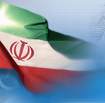The Devastating Impacts of Economic Sanctions on the People of Iran
Ordinary citizens are the silent victims

While the United States and European Union are vehemently competing with each other in the seemingly endless race of imposing sanctions on Iran, the ordinary Iranian citizens are experiencing the most breathtaking, agonizing impacts of the crippling embargoes.
On July 31, the American Israel Public Affairs Committee (AIPAC) sent a letter to all members of the U.S. Congress, demanding a concerted action to approve The Iran Threat Reduction and Syria Human Rights Act which imposes a new set of sanctions on Iran’s energy and transportation sector.
On August 1, the media reported that the Congress has ratified the bill and it’s waiting to be signed by the president.
Iran is already under 6 rounds of sanctions endorsed by the United Nations Security Council. The sanctions are purportedly aimed at preventing Tehran from acquiring nuclear weapons.
The UNSC sanctions stipulate a freezing of Iran’s international assets, the closure of branches of Iranian banks in other countries, barring the export of nuclear and military facilities to Iran, a ban on investment in Iran’s oil, gas and Petrochemistry sector, business dealings with the Islamic Revolutionary Guard Corps, banking and insurance transactions and traveling restrictions for high-ranking governmental and military officials.
The United States, Israel and EU countries have long accused Iran of trying to build nuclear bombs, a charge which Iran has persistently and categorically denied. Iran says that it needs civilian nuclear power to meet its growing energy needs, especially since Iran is a country mostly reliant on fossil fuels for its energy demands and oil revenues to keep its economy alive. The United States and its allies, in response, have penalized Iran with excruciating economic sanctions to derail the possible chances of Iran acquiring nuclear weapons capability.
On January 23, 2012, the European Union foreign ministers agreed upon imposing a multilateral oil embargo against Iran. The oil embargo which bans the European countries from buying crude from Iran went into effect on July 1.
What the Western officials say in public is that the sanctions are aimed at punishing the Iranian government and dissuading it from working toward acquiring nuclear weapons. What takes place in reality, however, is that the “smart” sanctions have directly come down like a ton of bricks on the Iranian people, making their life an arduous odyssey of struggling for survival in an ailing economy.
The sanctions have devastated the daily life of ordinary Iranian people by bringing the price of goods to a skyrocketing height, making the students abroad unable to get financial assistance from their parents in Iran, rendering it impossible for the private companies to do international transactions and making it extremely difficult for Iranians to get visa for traveling to foreign countries. The “smart sanctions” even include a ban on the importing of medicine and foodstuff from the other nations to Iran.
In the previous weeks, I have been arguing with my editors in some of the American political journals to convince them that certain sensitive medicines as well as agricultural goods could not make their way to Iran as a result of sanctions. They wouldn’t accept, telling me that such transactions were smoothly taking place. But now, I think they have credible evidence available, confirming that the hard-hitting sanctions are destroying the daily life of the poor, defenseless Iranians who should pay the price for the West’s and Israel’s animosity with their government.
On May 6, Radio Free Europe / Radio Liberty quoted Iran’s reformist daily Shargh as writing that the exportation of a great deal of vital medicines to Iran has been banned as a result of the sanctions. These medicines which Iran is not capable of producing include drugs for the treatment of cancer, heart and breathing problems, thalassemia, and multiple sclerosis.
Hamid Reza Emadi, an Iran-based political commentator also confirms that the latest round of sanctions imposed on Iran just a few days ago directly affect the lives of average Iranians who have nothing to do with the country’s nuclear program. “This latest move by the U.S. Congress shows the extent to which Washington has become frustrated and now it is going to step up their pressure on Iranian civilians by preventing the country from importing agricultural products… Iran is a grain importer and the U.S. knows that and by creating obstacles in the way of grain exports to Iran, the U.S. is clearly committing crimes against humanity because it only affects ordinary Iranians who have got nothing to do with the country’s nuclear energy program,” Emadi said in an interview with Press TV.
“Do not forget that it is not just agricultural products; the U.S. is putting maximum pressure on international banks doing business with Iran, therefore Iranian medical companies cannot import some vital medicines,” he added.
The board of directors of the Iranian Hemophilia Society has informed the World Federation of Hemophilia that the lives of tens of thousands of children are being endangered by the lack of proper drugs, a consequence of international economic sanctions imposed on the Islamic Republic.
Dr. Ron Paul, a Texas Congressman has called the recent sanctions an “act of war,” saying that the bill had better be named “Obsession with Iran Act 2012.”

